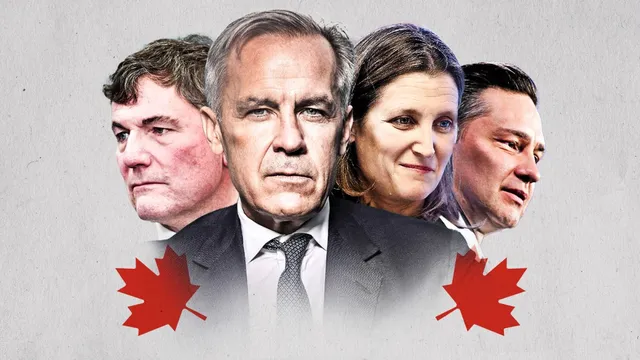
Justin Trudeau resigns after nine years in power
2025-01-09 00:00- Canadian Prime Minister Justin Trudeau resigned after nine years in office amid declining popularity.
- He cited prolonged parliamentary paralysis and internal party pressures as key factors for his decision.
- The resignation raises significant questions about the future leadership of Canada amidst looming elections and political challenges.
Express your sentiment!
Insights
On January 6, 2025, Justin Trudeau, the prime minister of Canada, announced his intention to resign from his position and as leader of the Liberal Party after nine years in power. Trudeau's decision came amid escalating unpopularity resulting from several domestic challenges, including inflation and a housing crisis, and significant political pressure from the Conservative Party, which had gained a commanding lead in the polls. The Liberal Party had experienced increasing internal dissent, compounded by the resignation of Trudeau's long-time ally and finance minister, Chrystia Freeland. Trudeau signaled that he would step down once a new leader was elected, allowing for an orderly transition before the scheduled parliamentary session in March 2025. As the political landscape is shifting, the Liberal Party must prepare for an election that could see the Conservatives, under the leadership of Pierre Poilievre, taking power. Trudeau's leadership has faced numerous controversies, most notably the criticism surrounding his handling of U.S. relations amidst threats of tariffs and criticism from former President Donald Trump, who publicly derided Trudeau as ineffective. With a general election looming this year, Trudeau’s resignation is seen as a critical turning point for Canada’s political future, as the Liberal Party hopes to regain support through new leadership ahead of the elections.
Contexts
Canada's political landscape has undergone significant transformations following Prime Minister Justin Trudeau's resignation. Trudeau, who led the government for nearly a decade, announced his decision to step down in late 2024, citing a desire for new leadership and a less contentious political environment. His resignation marked the end of an era characterized by a commitment to progressive policies and a strong stance on climate change, social justice, and multiculturalism. This shift has led to an atmosphere of uncertainty within the Liberal Party and the broader Canadian political spectrum as various factions vie for control and direction in the post-Trudeau era. The immediate aftermath of Trudeau's resignation has seen a scramble for leadership within the Liberal Party. Several prominent figures are considered possible successors, including cabinet ministers and other party veterans. This transitional phase has prompted debates regarding the party's future platform and whether to maintain the progressive ideals championed by Trudeau or to adopt a more centrist approach to appeal to a broader electorate. Meanwhile, the opposition parties, notably the Conservatives and New Democrats, are also positioning themselves to capitalize on the Liberal Party's internal strife as they aim to galvanize public support. Public opinion polls indicate a mixed reaction to Trudeau's departure. While some Canadians express disappointment at the loss of continuity in leadership, others welcome the opportunity for change and renewal, especially amid ongoing challenges such as economic pressures and public dissatisfaction with various government policies. This evolving sentiment poses a risk for the Liberals if they cannot present a cohesive message and a compelling vision for the future. As the political landscape shifts, the Conservatives have begun to attract younger voters who are increasingly concerned about climate issues and social equity, creating a potential challenge for the Liberals in retaining their traditional base. In conclusion, Trudeau's resignation serves as a pivotal moment for Canada as it navigates a complex political terrain marked by shifting public sentiments, leadership contests, and ideological realignments. The coming months are crucial for all parties as they attempt to redefine their strategies and messaging. The Liberal Party, in particular, faces significant challenges in reconciling its past achievements with the demands of an evolving electorate, which increasingly prioritizes accountability and responsiveness on pressing issues. How the party chooses to respond to these challenges will largely determine its political viability in the upcoming elections and the future direction of Canada's governance.